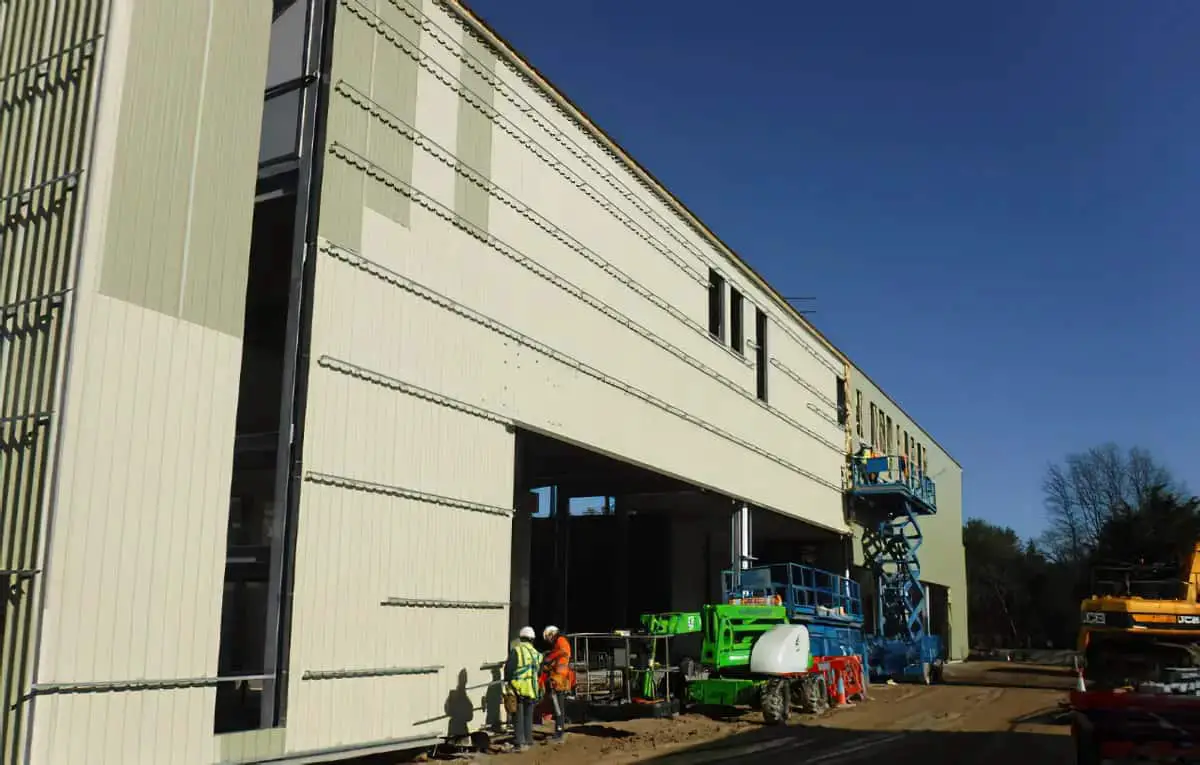Councils across the country are locked into long-term contracts with companies to burn black bag waste, despite growing concerns over the environmental impact of incineration.
A joint investigation by the BBC Climate and Science team and the BBC Shared Data Unit has this week highlighted a troubling trend: while local authorities have successfully reduced the amount of waste sent to landfill over the past decade, many are now relying heavily on incineration.
Incineration contract
The IWC does not have a standalone incineration contract. They told OnTheWight that the integrated waste management contract, which includes the design, build and operation of waste treatment facilities (at the Forest Road ‘Energy from Waste’ plant) funded by the council, runs through to 2041.
The assets will revert to the council at expiry (in seventeen years) or early termination.
Unlike some other contracts around the country, the IWC is able to exit the contract early, however, there would be significant financial impacts if the council or the service provider terminates the contract early “without a specified default occurring”.
The Isle of Wight’s waste shift
Data released by the BBC Shared Data Unit shows a significant shift in waste management on the Isle of Wight.
They say that in 2015, the Isle of Wight council (IWC) recycled 52 per cent of its waste, sent 31.5 per cent to landfill, and incinerated 16.4 per cent.
However, by 2023, the amount of waste sent to landfill was almost eliminated, with just 1 per cent of waste reaching this destination. Incineration had jumped by 25.6 percentage points to 42 per cent, while recycling rates had dropped by 5.5 percentage points to 46.5 per cent.
A spokesperson for Isle of Wight council explained to OnTheWight the reason for the changes,
“The amount of waste incinerated in 2014/2015 relates to the end-of-life gasification demonstrator plant that Energos operated at Forest Park. This plant had many issues.
“The increase in incineration is directly linked to the council’s commitment to limit landfill to only wastes that cannot go to other treatment facilities.
“In 2022/2023, the Energy from Waste Plant was undergoing hot commissioning, during which the plant was tested and run under real conditions.
“The amount of recycling and composting reported by the Authority to DEFRA declined from 52.0% in 2014-15 to 46.5% in 2022-23. For context, during 2022-23, the average recycling and composting rate for England was 40.7%. Additionally, 2022 was the warmest year on record, triggering drought conditions that significantly impacted composting rates on the Island and across the UK.
“The Service Provider, in conjunction with the council, is currently conducting its five-yearly waste composition study to determine the makeup of our waste. This study will help improve waste and recycling information and campaigns for residents in the future and better manage waste generated on the Island.”
This trend is reflected nationwide, as millions of tonnes of household waste are burned in ‘energy from waste’ facilities, which generate electricity for the National Grid, but emit rising levels of harmful greenhouse gases.
Forest Park ‘energy from waste’ plant
As reported in February 2024, after a five-year wait, final testing was underway at the Forest Road ‘energy from waste’ plant.
The Forest Road facility was supposed to have become operational in May 2019, but was beset by delays and ‘unforeseen technical issues’.
Isle of Wight council say that,
“The energy from waste plant in operation in the Hot Commissioning Test Environment and the plant is currently in Final Acceptance Testing (FAT). This means that it is incinerating non-recyclable waste and generating electricity.”
The Isle of Wight only processes residual waste (black bag waste) after it has passed through the Mechanical Treatment (MT) plant, where recyclables have been removed.
Environmental concerns over incineration
Environmental organisations, such as the Green Alliance and the UK Without Incinerators Network (UKWIN), argue that incineration is hindering progress on recycling and reuse.
They believe councils are missing the opportunity to make meaningful improvements to their recycling systems due to their commitment to waste-burning contracts.
The Isle of Wight council used 15 different incineration sites in 2022-23, according to the BBC data.
Potential health risks associated with incineration?
Critics point to the potential health risks associated with incineration. Communities living near these facilities often raise concerns about particulate matter—tiny harmful particles linked to respiratory diseases—emitted during the burning process.
A spokesperson for Isle of Wight council told OnTheWight,
“The IWC is aware that different energy-from-waste facilities produce varying levels of greenhouse gases depending on their design and emission controls. The Energy Recovery Plant installed at Forest Road in Newport was designed by Michaelis GmbH & Co. KG as a modern energy recovery system that exceeds air quality requirements. The design of the thermal conversion unit ensures low CO and NOx emissions to the surrounding environment.
“Our energy recovery facility has been constructed to enable a heat off-take for an onward heat network. This will reduce the wider Island’s carbon impact by supplying hot water to public facilities or housing. We are progressing the planning to deliver the heat network with a national provider of heat network solutions.”
They go on to add,
“We have always committed to incinerating only non-recyclable waste, such as absorbent hygiene products, contaminated waste, pet waste, and persistent organic pollutants like foam from armchairs and sofas. The mechanical treatment plant at Forest Road removes ferrous and non-ferrous metals, as well as recyclable plastics, from the black bag waste stream before it is shredded for incineration.
“Through our partnership with our waste service provider, we have successfully diverted over 95% of waste away from landfill, ensuring that the Island’s waste does not release harmful greenhouse gases from landfill sites directly into the environment. The council’s waste services do not incinerate food waste, green waste, or recyclable waste streams.”
What happens to waste at Forest Road plant
The mechanical treatment plant at Forest Road pre-treats general waste (black bag) upon arrival and uses the latest sorting technology to remove recyclable materials such as metal, glass and plastics for recycling.
The IWC spokesperson told OnTheWight,
“There are several waste stream elements that cannot be recycled, such as pet waste and bedding, absorbent hygiene products (nappies, incontinence wear, etc.) and offensive non-infectious medical waste.
“We will continue to incinerate these unless a recycling market opens up.”
PHE: Modern incinerators are not a significant risk to public health
However, Public Health England (PHE) has downplayed these fears, stating that “modern, well run and regulated municipal waste incinerators are not a significant risk to public health.”
PHE acknowledges that while it cannot completely rule out adverse health effects, any potential impact on nearby residents is expected to be very small.





